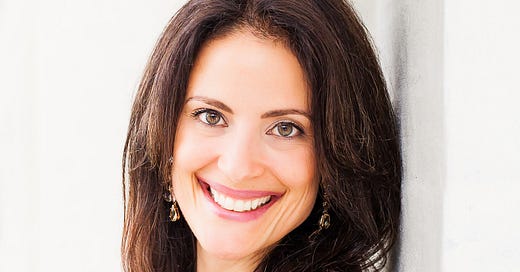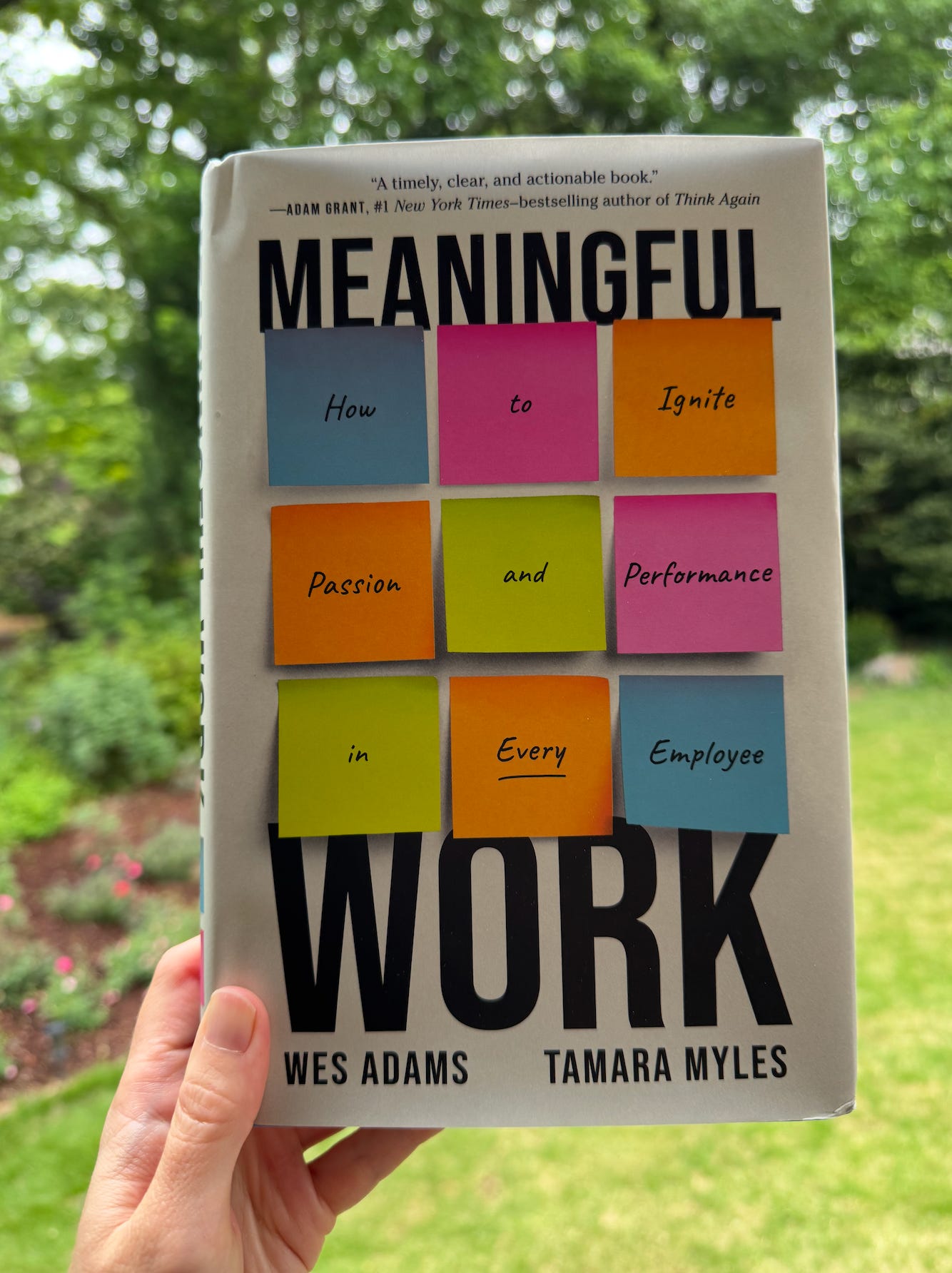Hello, Hello. It’s Julia. Welcome to my weekly newsletter where I explore the ways we communicate and connect at work and beyond. I’m excited to feature Tamara Myles. Thank you to Cait and Bryce Webster for nominating Tamara. You’re the best of friends, and I’m grateful for all the work and life conversations we share.
In This Edition
🎤 Leadership is all about influence: Even if you don't have a title, you can have influence.
💚 Meaningful work is enduring: People crave meaning and want to know their work matters leading to increased energy and productivity.
🙏 Recognition and appreciation go a long way: Simple acts like expressing gratitude and acknowledging contributions can have a profound impact.
About Tamara
Tamara Myles is a speaker, author, and professor specializing in the science of human flourishing at work. She helps leaders and organizations like Microsoft, KPMG, and MassMutual unlock the power of meaningful work to drive peak performance, innovation, and resilience. A faculty member at Boston College and a researcher and instructor at the University of Pennsylvania, Tamara’s work challenges assumptions about work, showing that when leaders make work meaningful, they create thriving teams and lasting impact.
What sparked the path into your field?
I was working as a productivity consultant for more than 15 years, and I wrote my first book on my learnings: “The Secret to Peak Productivity” In that book, I introduced the Peak Productivity Pyramid model, which is inspired by Maslow's hierarchy of needs. At the very top of my pyramid, when there are systems in place to help you do more of what matters with the time you have - is a level I call Possibility. Through my work with leaders, I noticed that the more time people spent at the top of the pyramid, the more energized and productive they felt. It was a virtuous cycle.
I became really curious and began asking myself: What makes people feel more energized and productive? What is the science behind this cycle? I decided to go to graduate school at the University of Pennsylvania’s Positive Psychology program to study how we can unlock more meaning at work — specifically I was curious to understand the role leaders play.
What is a value that drives you personally and professionally?
If I had to choose one, it’s integrity. It's about doing things the right way, not just doing them. Living your life and doing your work from a values-aligned perspective matters to me deeply.
There's a saying in positive psychology from one of the founders, Chris Peterson. He was once asked to summarize the entire field in one sentence. He replied, “I only need three words: other people matter.”
That rings so true to me and the way I want to live my life. The value here extends beyond integrity to kindness and love.
As you look back, is there a pivotal project that's shaped your career or inspired you?
The research that led to the book! I had been running my company as a solo entrepreneur for more than 15 years. When I went to graduate school, I met and partnered with my classmate, Wes Adams. It was meaningful to have a true colleague and reminded me of the power of collaboration. When we started the study, it was pre-Covid: we were interviewing leaders in-person. Then, we had to pivot to study virtually.
What was happening in the world during the study was something none of us had experienced. For us to see the power of meaningful work during a time of crisis was really important. We were seeing how companies and their leaders were reacting. When we published our research in August of 2020, there was such a big interest in it. We really didn't expect it — it was our graduate school thesis — but research partners reached out to continue the study and scale it to test these practices. Now we've been doing this research for over 5 years and it's continued through all of the chapters of work changes we've experienced over the years. We found that meaningful work is enduring, and it's long-lasting. No matter what's happening in the world, people crave meaning. They want to know that their work matters.
Tell us about your book, “Meaningful Work.” What are your favorite lessons in it?
When we were doing research and coding the data in our study, I thought we were going to discover something novel. Instead what we learned is it’s the small, everyday moments that matter, but it doesn’t mean they're easy. The everyday practices require intention and focus.
One of the practices we highlight is giving positive feedback — one thank you, once a week from a manager — makes all the difference. Less than 40% of people think their contributions are recognized appropriately. We show tactics for achieving this in the book, and it became even more real recently with an interaction I had with the book’s Portuguese translator.
Because Portuguese is my first language, I wanted to be involved in this process. The translator shared that her husband plays for an orchestra in Brazil that is funded by the government. He can have a hard time motivating his musicians. He tried our positive feedback model with one of his team members to let her know how much of an impact she was making. She was so appreciative and shared that she had been feeling she was not adding any value and was thinking of retiring. That moment completely re-energized her and showed her that she matters and adds value.
Imagine going to work every day feeling like nobody notices and then to be seen like that — to have your strength highlighted and recognized? This doesn't cost anything but it makes all the difference!
What are the skills needed to be a great culture builder?
I’ll highlight two core skills. First, leadership — it’s all about influence, even if you don't have a title, you can have influence. It’s about how you show up and walk the talk of your values. Next, it’s how you show up as a good teammate with self-awareness. This can come from self-reflection, asking trusted people their perceptions or taking assessments.
What are hacks or habits that ground you in life and work?
I’ll share my morning and evening rituals. To start the day, I love to read a poem. The metaphors and visual imagery inspire me as a writer and remind me of the beauty in the world. At the end of the day at dinner, my family started a ritual together 10 years ago. We go around the table and say something that we are grateful for from the day. It grounds us as a reminder that good things happen — it can be small or big moments, from the dog being so happy to see us to this person helping at school or work. The most special part of it is that the kids will do it with their friends when they are together too. So this tradition helps others in meaningful ways.
Below is me reading the book! If you enjoyed this article, please share it.







Loved the way this interview moved between research and lived experience. As an org researcher myself, I can appreciate Tamara's comment about how enlivening research has been in her career. But I also loved the simple thing about expressing gratitude at the table. (And the comment about how happy the dog is to see you, too!) Thanks for your good, clear work, Julia!
I really enjoyed this interview! What resonated most was the reminder that acknowledgment costs so little yet means so much, and that people deeply want to know their work matters. Looking forward to reading “Meaningful Work”!